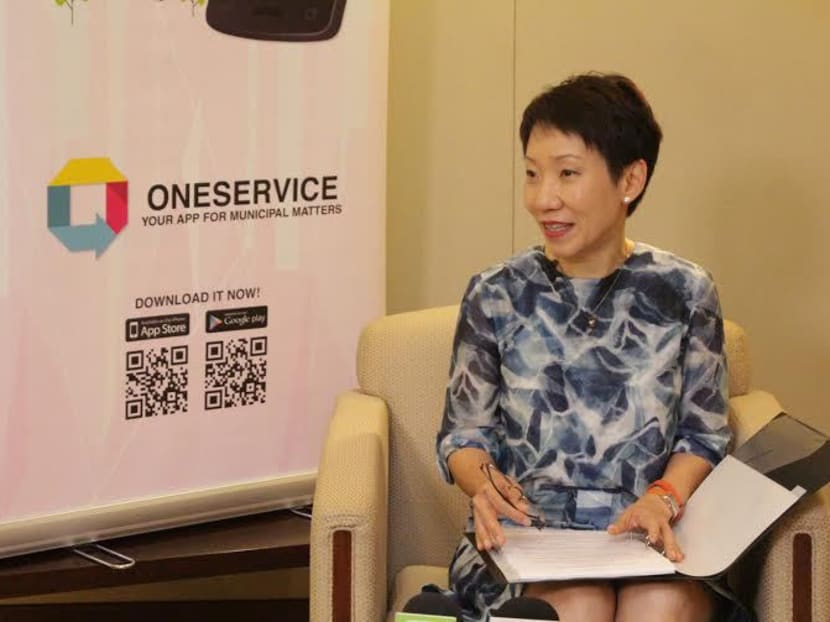MSO hopes to get six more town councils on board
SINGAPORE — It has cut the response time for cases involving multiple government agencies from 8 to 6.5 days on average, and the Municipal Services Office (MSO) has set its sights on more seamless management of cases between public agencies and town councils through the expansion of a pilot project.

Minister in the Prime Minister’s Office Grace Fu said all remaining town councils will be invited to join the Working Arrangements pilot project, and six more will be selected. Photo: Low Wei Xin
SINGAPORE — It has cut the response time for cases involving multiple government agencies from 8 to 6.5 days on average, and the Municipal Services Office (MSO) has set its sights on more seamless management of cases between public agencies and town councils through the expansion of a pilot project.
Since March, the MSO has been working with the Jurong and Holland-Bukit Panjang town councils on protocols to ensure cases transferred between public agencies and town councils do not get lost. Both town councils and the MSO also created a manual to clarify responsibilities so residents do not get referred to the wrong agency.
“What we’re doing is to help town councils to send it to the right public agencies because town councils are receiving much of the feedback that’s ... actually meant for the agencies,” said Minister in the Prime Minister’s Office Grace Fu, who oversees the MSO.
The pilot project has worked well and the MSO now wants to get six more town councils on board. It will be inviting all town councils including the Workers’ Party-run Aljunied-Hougang-Punggol East Town Council, and will select the six in the next two months, said Ms Fu, who is also Second Minister for the Environment and Water Resources.
In picking the additional town councils, the MSO will look at their geographical spread as well as readiness and enthusiasm to make the necessary changes. It hopes to work with all 16 town councils within the next year, she said.
While it may be too early to measure the pilot project’s benefits, Ms Fu said: “Just from the fact that we’re able to come up with a common service standard ... and the fact that we’re able to iron out some of these ambiguous boundary issues, I think these benefits should be enjoyed by the other town councils.”
At a media briefing today (July 6), Ms Fu also gave updates on the progress of the MSO since it started last October and the OneService mobile application launched in January.
A backend feedback management system linking the MSO and its 11 partner agencies was implemented for parties to electronically submit and monitor cases on a common platform. With this integrated system and established protocols, agencies have improved their response time for referral cases, taking an average of 6.5 working days in May to close cases compared with an average of eight last October.
Residents have received faster responses to their requests for municipal infrastructure such as lighting and footpaths, she noted. In the past eight months, MSO has worked with its partner agencies to facilitate 22 municipal infrastructure requests.
It will also be working with the Public Service Division to develop standard operating procedures on what agencies should do and how each should hand over to another.
The OneService app has drawn more than 22,000 registered users and more than 9,000 instances of feedback as of June. To make it more user-friendly, Ms Fu said it will be upgraded to include more categories and allow for more accurate geotagging as well as multiple photos to be submitted.
The proportion of feedback submitted through the app or Web portal has increased from 3.3 per cent in October last year to 9.4 per cent in May, and Ms Fu hopes to see a greater shift from traditional phone calls and email, to these digital platforms.
“The more data we have that have geographical information allow us a more complete picture of the state of municipal services on the ground … (and) allow us to identify the problem areas and give us a better handle on where the so-called ‘hot spots’ are, so we can better manage our resources as well,” she said.






